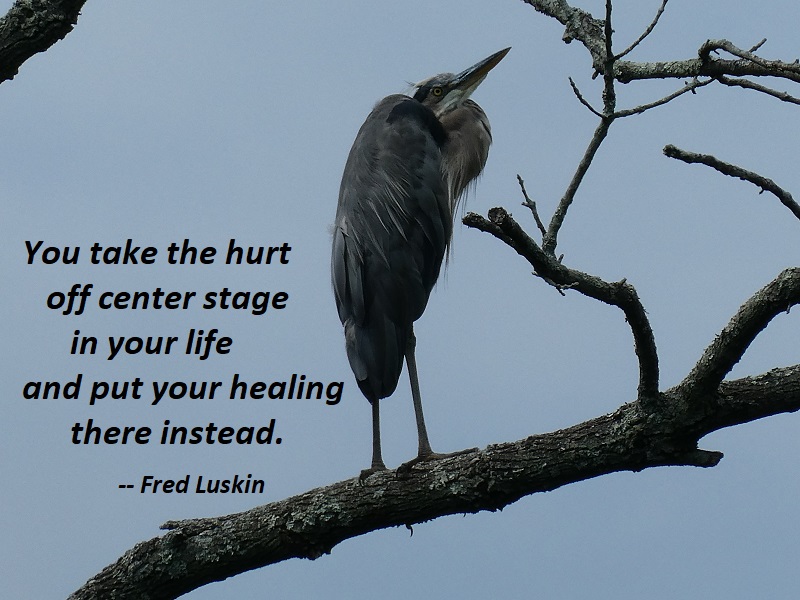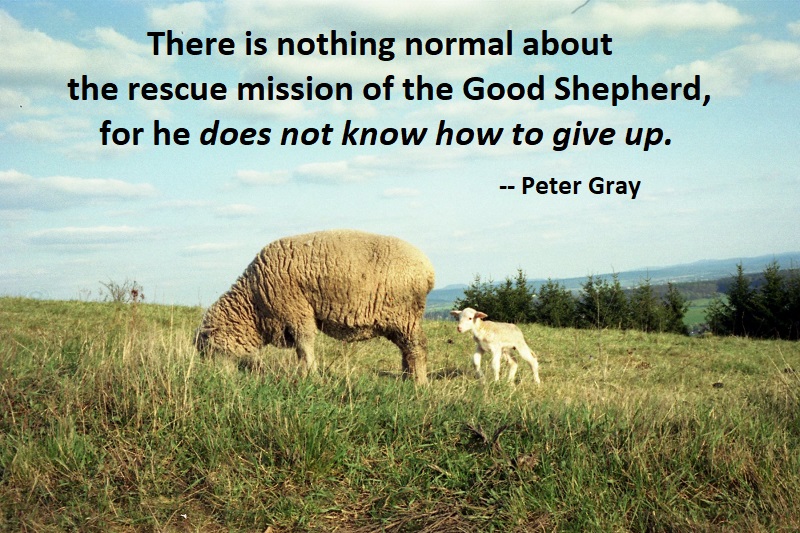
Recently, the pastors at my church did a short sermon series on God’s Will. They made some wonderful points, but didn’t talk much about how these things fit with God’s guidance. This post is going to mull over what I think and believe about God’s guidance.
In the choir on the third week of the series, we sang “Guide Me, O Thou Great Jehovah,” and “He Leadeth Me, O Blessed Thought” — so I expected that third sermon to touch on God’s guidance and God’s leading. God’s guidance does relate to “God’s plan.”
Now, what the pastor did talk about was very helpful. He mentioned that Time Travel movies have conditioned us to think that every little decision we make can drastically affect our futures. Combine that with talk of “God’s Perfect Plan,” and we put too much pressure on ourselves when we make decisions. He made the strong point that the idea of “God’s Perfect Plan” is not biblical.
God gives us agency! He allows us to make choices. Real choices that affect our lives and the lives of others. He doesn’t have One “Plan” for our lives — one that we can irrevocably mess up.
What we can do is align ourselves with God’s Will. We can make choices that align with loving God and loving our neighbor as ourselves.
I like that message. Though my first thought is along the lines of What happens when other people around you are not aligned with God’s will and your life is affected? Okay, let’s get specific. Suppose your husband has an affair (clearly not aligned with God’s will) and divorces you.
Well, this message brings hope — Since God doesn’t have only One Plan for my life that I have to follow — my ex-husband can’t mess up my destiny. I already have seen that God has redeemed my single state and has filled my life with good things — some of which specifically came from my divorce. I would not have sought full-time work or become a librarian if I were still married, for example. And if I weren’t a librarian, I never would have gotten to serve on the 2019 Newbery Committee or received the 2019 Allie Beth Martin Award from the Public Library Association. Becoming a librarian has been a wonderful thing for me. Even though it wasn’t my personal Plan A for my life.
So let me receive the point loud and clear that someone else’s sin may affect your life dramatically, but it doesn’t pull you out of the possibility of aligning with God’s will. God can redeem the trials, and He promises in Romans 8:28 that He will work all things together for the good of those who love Him. That doesn’t mean that “everything happens for the best.” God doesn’t promise us “the best” at all times, and people sinning against you can indeed do you terrible harm. But I do believe that God can bring good out of anything.
In fact, I believe that if God can’t bring good out of it, He won’t let it happen. Unfortunately, He is very good at bringing good out of bad things! (I personally would prefer it if He would just keep the bad things from happening.)
So, yes, God gives us agency to make choices. And yes, He is with us as we live through the consequences of those choices — our own and others.
But I still believe that God gives guidance when we ask.
I mainly base this on James 1:5:
If any of you lacks wisdom, you should ask God, who gives generously to all without finding fault, and it will be given to you.
In the Bible, wisdom consistently refers to what you do, to making good choices. So if you lack wisdom to know what to do, God encourages you to ask.
The Psalms have several passages where the writer asks God to lead.
Psalm 31:3 — “Since you are my rock and my fortress, for the sake of your name, lead and guide me.”
Psalm 25:5 — “Guide me in your truth and teach me, for you are God my Savior, and my hope is in you all day long.”
Psalm 23:3 — “He guides me along the right paths for his name’s sake.”
Psalm 119:105 — “Your word is a lamp for my feet, a light on my path.”
Psalm 5:8 — “Lead me, Lord, in your righteousness because of my oppressors — make straight your way before me.”
Psalm 143:8 — “Show me the way I should go, for to you I entrust my life.”
Yes, God gives us agency, but He is happy to help us figure out how to use that agency.
The pastor was urging us not to put so much pressure on our choices. If we have a big decision — whether to take a job in another state, whether to accept a marriage proposal, for example — we can’t mess up God’s will for our lives. Make the best decision we can, and God will be with us.
When faced with a big decision, though, is a good time to ask for wisdom.
One of the big good things that came out of my divorce was that I learned to ask God for wisdom. I was desperate, and I believe He answered.
But how does He answer? How does He give wisdom?
John Eldredge takes on this topic head-on in his book Walking with God. I’m going to copy here the same long quote I posted in my review of the book.
Now, I know, I know — the prevailing belief is that God speaks to his people only through the Bible. And let me make this clear: he does speak to us first and foremost through the Bible. That is the basis for our relationship. The Bible is the eternal and unchanging Word of God to us. It is such a gift, to have right there in black and white God’s thoughts toward us. We know right off the bat that any other supposed revelation from God that contradicts the Bible is not to be trusted. So I am not minimizing in any way the authority of the Scripture or the fact that God speaks to us through the Bible.
However, many Christians believe that God only speaks to us through the Bible.
The irony of that belief is that’s not what the Bible says.
The Bible is filled with stories of God talking to his people. Abraham, who is called the friend of God, said, ‘The Lord, the God of heaven, who brought me out of my father’s household and my native land and who spoke to me . . .’ (Genesis 24:7). God spoke to Moses ‘as a man speaks with his friend’ (Exodus 33:11). He spoke to Aaron too: ‘Now the Lord spoke to Moses and Aaron about the Israelites’ (Exodus 6:13). And David: ‘In the course of time, David inquired of the Lord. “Shall I go up to one of the towns of Judah?” he asked. The Lord said, “Go up.” David asked, “Where shall I go?” “To Hebron,” the Lord answered’ (2 Samuel 2:1). The Lord spoke to Noah. The Lord spoke to Gideon. The Lord spoke to Samuel. The list goes on and on.
I can hear the objections even now: ‘But that was different. Those were special people called to special tasks.’ And we are not special people called to special tasks? I refuse to believe that. And I doubt that you want to believe it either, in your heart of hearts.
But for the sake of argument, notice that God also speaks to ‘less important’ characters in the Bible. God spoke to Hagar, the servant girl of Sarah, as she was running away. . . . In the New Testament, God speaks to a man named Ananias who plays a small role in seven verses in Acts 9. . . .
Now, if God doesn’t also speak to us, why would he have given us all these stories of him speaking to others? ‘Look — here are hundreds of inspiring and hopeful stories about how God spoke to his people in this and that situation. Isn’t it amazing? But you can’t have that. He doesn’t speak like that anymore.’ That makes no sense at all. Why would God give you a book of exceptions? This is how I used to relate to my people, but I don’t do that anymore. What good would a book of exceptions do you? That’s like giving you the owner’s manual for a Dodge even though you drive a Mitsubishi. No, the Bible is a book of examples of what it looks like to walk with God.
In my own life, a turning point happened soon after my husband had moved out, very much against my wishes. For months, very helpful books had been landing on my desk at the base library, books that helped me respond to my husband’s anger with compassion and that helped me more calmly work on my own attitude and gave me hope that he would come around.
But the turning point in my attitude came in a pastor’s sermon. He was talking about a very odd miracle that Jesus did in Mark 7, healing a man who was deaf and mute.
After he took him aside, away from the crowd, Jesus put his fingers into the man’s ears. Then he spit and touched the man’s tongue. He looked up to heaven and with a deep sigh said to him, “Ephphatha!” (which means, “Be opened!”). At this, the man’s ears were opened, his tongue was loosened and he began to speak plainly.
I’ve always thought that story was a little strange. But this pastor pointed out something I’d never noticed but seems absolutely true once you think about it — Jesus was speaking to the man in sign language!
The man could not hear or speak. Jesus took him aside and got his attention. Then he dramatically pantomimed what he was going to do.
The pastor made this powerful point: “God speaks your language!”
It brought me to tears at the time. Because all those helpful books that had been showing up on my desk at just the right time? My language is books, and God was speaking to me that way. My language is also Scripture (I have memorized large portions of the Bible.), and throughout those divorce years, God continued to speak through Scripture as well. More than once, I’d think God was speaking to me through a verse. I’d ask for confirmation, and the next Sunday that verse would be mentioned in the sermon. (These were obscure verses, too.) That was enough for me.
Now, there’s a part of me that feels very presumptuous to think that God would pay enough attention to my life to speak to me. It’s that part that leads me to burst into tears most times when the coincidence is simply too big — I have to believe God is speaking.
Yes, God notices me. Yes, God cares about my life. Yes, God will give me wisdom and guidance. He will give that generously and without finding fault. He won’t be angry when I need confirmation.
So this is the flip side of putting so much pressure on a decision that we’re paralyzed. Yes, God gives us agency. But He’s generous to help us when we don’t know what to do.
And that flip side is what I want to say loud and clear: God loves you enough to be interested in your life and to give you guidance. He pays attention to you, yes, you!
I think a big part of why that hits me so hard is that I’m the third of thirteen children. It feels presumptuous to think that God would be concerned about the details of my life. But God notices even me!
Now, I have to add that as much as I learned to listen to God’s voice, to not be afraid to ask for guidance — all that was cast into doubt when things didn’t turn out the way I thought they would.
For a very long time during my conflict with my ex-husband, I really thought God was telling me that he would come back.
But about five years after he moved out, I did think it was the right thing to file for divorce.
I thought through what I believed God had told me. And the wisdom part, the part about knowing what to do was: “Wait on the Lord.”
And that was indeed wisdom. If I had filed for divorce or given up on my husband at the very beginning — I don’t think I would have believed that he had truly changed. I knew I’d given him ample opportunity to return. I still believe and hope that God was saying that my ex-husband will eventually have a change of heart and come back — to God. But he does not need to come back to me, and I finally figured out that wouldn’t be the best thing, anyway. (In fact, before I signed up for online dating, I made my friends promise to stop me if I was ever tempted to take my ex-husband back.)
So maybe I was wrong about what was going to happen. But I was not wrong about what God was telling me to do: Wait.
And there were other things God told me that turned out to be truly wise: “Do not go down to Egypt for help.” (Do not try to get him in trouble with his first sergeant for having an affair.) “Do everything without complaining or arguing.” (Got me not to send my initial answer to an abusive email.) After the divorce, when I was still obsessing over him: “Ephraim is joined with idols. Leave him alone!”
All of those things — and the many other ways God led me — helped so much!
But now, almost a decade after the divorce was final, it doesn’t seem like God is speaking as much any more. Is that because I don’t need it as much, not being in anywhere near as difficult a situation, or is that only because I’m not asking?
And what does it mean to walk with God, to align yourself with God’s will? I’m going to accept my new pastor’s reminder that we shouldn’t let our desire to follow God’s will be paralyzing.
I also think of a sermon my former pastor preached. He brought a chalkboard into the room and drew a long line that he said represented a continuum. On one end was “letting things happen.” He said that was living life like you’re on a raft, just going where the current takes you. This is often all in the name of “God’s will” and not exercising agency at all.
On the other end was “making things happen.” This is when you try to do everything yourself. It’s all about exercising your own agency to make sure your life goes the way you want it to go. Or trying, anyway. This is like living life on a motorboat, not relying on any power outside yourself.
But he said that where we want to be is somewhere in the middle, on the “Path of Trust.” This is more like living life on a sailboat, turning the sail to catch the wind and move with the power of the wind. It’s not trying to be in total control, but it’s also not just giving up any control at all. Walking on the Path of Trust is trickier than being on either of the ends of the spectrum.
It was when I heard that sermon that I realized that in my prayers, I wasn’t trusting God. I’d been insisting that God bring my then-husband back. I was telling God how things had to turn out. That wasn’t trust. That was me trying to be in control.
Walking with God when I’m not sure what I think God should do? That’s much trickier. To be honest, when I was praying so much, asking God for guidance about my failing marriage, in my heart I was asking God, What should I do to that will help my husband come back? I really thought it must obviously be God’s will for divorce not to happen.
God was faithful. And God answered the question, What should I do to walk with You as I live my life in this difficult space?
Now? I’m not in as difficult a daily space. I’m not asking for guidance out of desperation, but maybe I should still be asking for guidance. Because I do lack wisdom.
And then there’s the matter of what I want to happen in my life: I’d like to get married again. But how to find a man who loves the Lord and loves me?
And that’s where the Path of Trust seems like a good analogy. On the one hand, I could decide the Lord has to do it and not make any effort at all. On the other hand, I could throw myself into online dating and try to get the attention of any and every man I find there.
In practice, I’m tending to wobble between those two approaches, though leaning more toward the no effort extreme. But for the most part, I’m seeing the Path of Trust as having an online presence so that I’m not hiding under a rock, but still being very selective about what messages I answer, and not spending hours of time looking. I’m not sure if this is the best approach, but that’s the thing about the Path of Trust — I do think it can change.
But what if I let go of the outcome? What if I ask God for guidance today, but I don’t try to tell him how my life has to turn out? And what if I’m open to that guidance having nothing to do with finding a man, for example: Today, Sondy, you should try to get a lot more sleep, because you need to get well.
Hmm. The verse that came up in my Bible reading today was Psalm 127:3 —
In vain you rise early
and stay up late,
toiling for food to eat —
for he grants sleep to those he loves.
Now, it may be completely crazy to take that as a message from God to me. Why would God pay that much attention to my life?
Never mind that I’ve been sick for eight weeks and counting and have been asking my friends to pray for me. Never mind that I asked God what I should say Yes to for Lent. Wouldn’t it be presumptuous to take this passage as God speaking to me, giving me wisdom?
And that’s kind of how it works. This verse leaped out at me today. It seems like a wise thing for me to do at this time in my life.
So I’m going to dare to say that God put that verse in my life today. Because He loves me, and does care about my life.
So for Lent, I’m going to try to shut off my computer earlier, not make sure I do all the things I’d like to daily before I go to bed. I’m going to try to go to bed earlier, and say to myself, “Sondy, God’s giving you sleep tonight because He loves you.”
I’d better start now….








